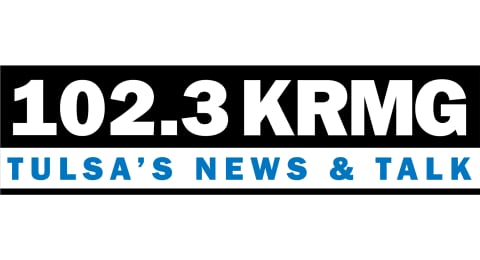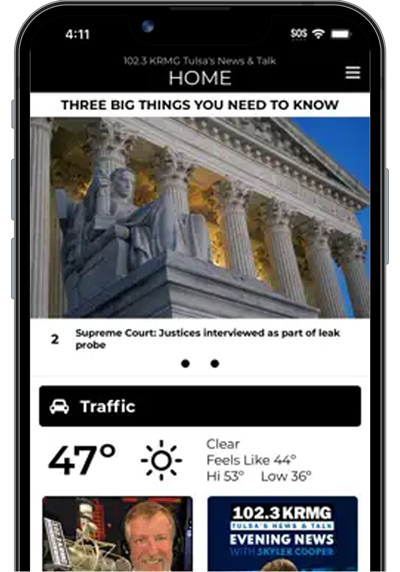LOS ANGELES — (AP) — RZA’s hoarding habit led to his newest adventure in music: a ballet and surprisingly traditional classical album he calls “A Ballet Through Mud.”
Early in the pandemic, the 55-year-old Wu-Tang Clan founder, born Robert Diggs, was rummaging through a bag of old spiral notebooks he found in his library. He pulled out a blue Mead notebook full of rhymes, phone numbers and movie ideas that he'd written as a teenager growing up in Staten Island.
Looking through the books, a series of storytelling raps stood out — ones that he’d deemed too “immature” to use when he started his first group with cousins Russell Jones and Gary Grice, who later took the names Ol’ Dirty Bastard and GZA/Genius.
He’d been studying music theory for years and had already composed the scores to 10 films. So, noodling along on the keyboard, he began crafting melodies that matched the emotions of one of his teenage rhyme-stories about six friends, “Joe Is A Nerd.” Was it an opera, potentially?
He kept going, finding further inspiration and building out orchestration, until his wife weighed in: No vocals needed. After watching a documentary about Alvin Ailey on a flight, he sought out dancers to visualize his imagined narrative, and eventually collaborated with the Colorado Symphony for two performances in February 2023.
RZA sat down at his office in suburban Los Angeles to speak with The Associated Press about the nostalgic genesis of the project, the growing bridge between the worlds of classical and hip-hop and his hopes for what happens next with his composition and ballet.
I’m remembering my high school buddies, my high school crushes, my high school heartbreak, all that’s happening. And I just saw it and ... It’s kind of like how Elton John would do with Bernie Taupin lyrics. I started writing music, composing music. And as the music started to have its own voice, its own speaking, all the emotions that I was trying to capture would be captured.
But it was like there was no need to put lyrics over it. And I fought myself about that over and over until maybe after about six songs. Then the music took on a life of its own.
We had a great time when we did the Wu-Tang concert with them. They have all the charts for the Wu-Tang, and so I know that (resident conductor) Chris (Dragon) gets me.
And then I get on with (Chief Artistic Officer) Tony Pierce and Tony’s like, “That sounds great. We would love to be a part of it. But also, we have started this program called the Imagination Program, where they’re striving to help bring more young people to the orchestra. They’re striving to spread the culture.”
It’s a synergy there. And so we agreed to do that. And he’s like, yo, it’s a three-year process. You can develop your own stuff and play with it along the path.
They are balletic. But you think of them in a more macho way than Alvin Ailey did. You have to have a sensitive side now. And that could be the side of hip-hop that I was fighting against. But then you realize as an artist, this is a genius. As I get older, as an artist, my boundaries become more artistic versus more confined to a box.
I created it. I think other people should play with it. I would love to see a high school take it and play it and dance it and share it. That would be the greatest.
Like it actually goes to high schools or go to freshmen in college or go, you know, places where people young can express it and feel it. It’s not complicated like Beethoven’s Ninth, Tchaikovsky. But yet, because of the proper use of the orchestra, it’s still big.
The first intention is that for somebody to listen to this, go through the story that it gives them in their own mind and enjoy. That’s the first thing. This is a gift. So that’s what feels so good about it. It’s like, yo, I could’ve bought a Bentley or something. Nah.
I made a piece of music that caused some emotions, you know, put people to work, you know, everybody made a few dollars who did it right? Bought back to the community. Music has given me a lot. I gave a gift back.
Wu-Tang performed at Coachella (in 2013). I only agreed to do it if I could have the orchestra back me. Hip-hop samples from orchestras all the time. Barry White, we love Isaac Hayes because he was orchestrating and composing, Quincy Jones — these are my mentors right here. So, it was natural for us.
And I’m happy that the culture is doing it. There was a hip-hop violinist a few years ago that was dope. There’s a dope orchestra in Atlanta right now, the all Black (Orchestra Noir). They’re bananas with it. They’ll drop some Future on you. I think Metro Boomin tried something recently.
I feel like a pioneer of it. Like in 1997, I’m bringing in real violins into my sessions to create “Reunited” and other songs on “Wu-Tang Forever.” But the idea is that somebody young could start with it, not end up with it like I ended up here. Start with a violin, cello, trumpet, brass — start with those with that knowledge. So then when you start creating with the technology you have now, the sky’s the limit.
Copyright 2024 The Associated Press. All rights reserved. This material may not be published, broadcast, rewritten or redistributed without permission.

:quality(70)/cloudfront-us-east-1.images.arcpublishing.com/cmg/SRQYNH6XQF27BFY4HD326SLBQ4.jpg)



:quality(70)/cloudfront-us-east-1.images.arcpublishing.com/cmg/NWEDWV2O4RGHJKWOOURZBNS7JQ.png)
:quality(70)/cloudfront-us-east-1.images.arcpublishing.com/cmg/DSBTYWDD65HQHNJTDVCIU25ISY.png)
